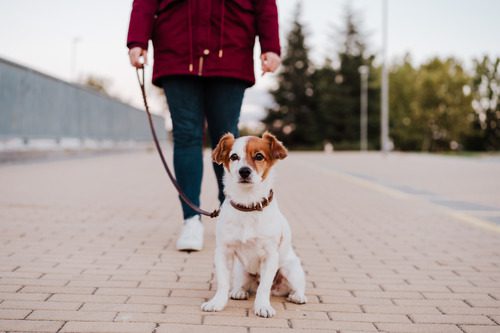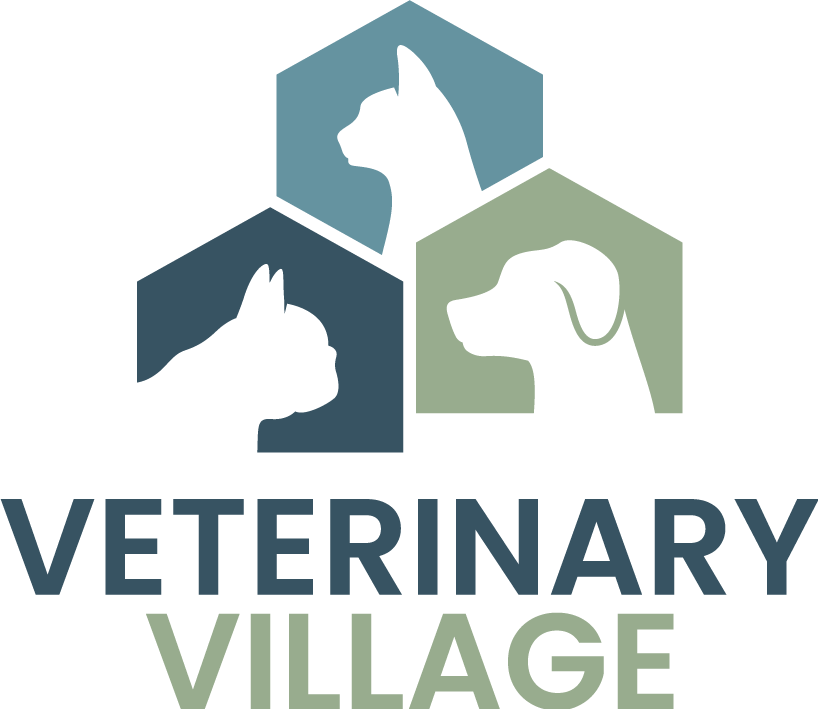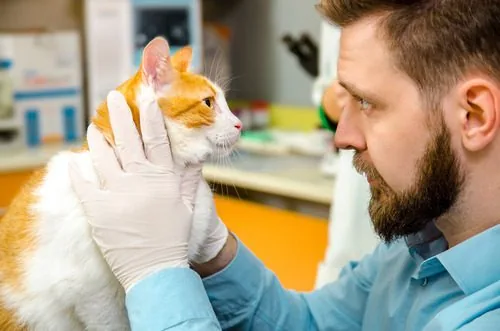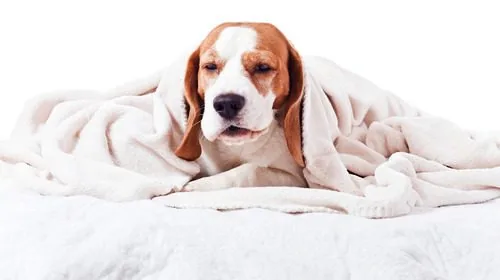Dog Coughing: Causes, Treatment Options and When To See the Vet
If you’ve noticed your dog coughing, you’re likely concerned about what it means and whether it’s something serious. Dogs can cough for many reasons, some mild and others requiring immediate veterinary attention. In this blog, we’ll explore common causes, treatment options, and when to visit Veterinary Village to ensure your dog stays on the path to wellness.

Common Causes of Dog Coughing
Dog coughing can stem from a variety of underlying issues, ranging from simple irritants to more serious health concerns. Here are some common reasons dogs develop a cough:
Respiratory Infections
Bacterial, viral, or fungal infections can affect your dog’s respiratory system, causing inflammation and irritation in the airways. Kennel cough, caused by the bacterium Bordetella bronchiseptica, is a well-known infection leading to persistent, hacking coughs in dogs. Canine influenza is another viral infection that may cause coughing alongside other symptoms like nasal discharge and lethargy.
Allergies and Environmental Irritants
Pollen, dust, mold, and even smoke can trigger allergic reactions in your dog, leading to coughing, sneezing, and itchy eyes. Environmental irritants like secondhand smoke or strong cleaning chemicals may also lead to bouts of coughing, especially if your dog is particularly sensitive.
Heart Disease
Certain heart conditions can also be linked to persistent coughing. Dogs with heart disease, such as congestive heart failure, may experience fluid build-up in the lungs, leading to a chronic cough. If your dog’s cough worsens with activity, accompanied by lethargy or difficulty breathing, it could be a sign that heart issues are present. Immediate veterinary attention is crucial in such cases.
How Is Dog Coughing Treated?
The treatment for your dog’s coughing depends on the root cause. While there are no home remedies that can substitute for professional veterinary care, here are a few approaches a vet may consider:
- Medications: For infections like kennel cough, antibiotics or antivirals may be prescribed. In cases of allergies, antihistamines or steroids can help reduce the inflammatory response that leads to coughing. For heart-related issues, diuretics or medications that support heart function may be necessary to alleviate symptoms.
- Addressing Environmental Factors: If allergies or environmental irritants are to blame, your vet may suggest changes to your dog’s environment. This could include air purifiers, switching to hypoallergenic bedding, or limiting exposure to known allergens like smoke or strong fragrances. In cases where the cough stems from seasonal allergies, your vet may recommend preventive measures to keep your dog comfortable.
Monitoring and Follow-Up
Regardless of the cause, follow-up care is often required to ensure that your dog’s cough is improving and that the underlying issue is properly managed. Your vet may suggest regular check-ups, especially if your dog has a chronic condition like heart disease that requires ongoing care.
When To See the Vet for Your Dog’s Coughing
Not every cough is cause for alarm, but there are specific signs that indicate your dog needs to be seen by a vet. Here’s when it’s time to make an appointment at Veterinary Village:
- Persistent Coughing: If your dog’s cough lasts more than a few days or seems to be getting worse, a vet evaluation is necessary. This is especially important if your dog hasn’t been exposed to other dogs or situations that may explain the cough (like boarding or doggy daycare).
- Difficulty Breathing: Coughing accompanied by labored breathing, rapid panting, or wheezing can point to a more serious issue like pneumonia or heart disease.
- Coughing Up Blood: Blood-tinged mucus or saliva in your dog’s cough should never be ignored, as it may indicate internal damage or a severe infection.
- Lethargy and Loss of Appetite: If your dog’s cough comes along with other symptoms like lethargy, loss of appetite, or a decrease in energy levels, it’s time for a thorough veterinary examination.
How To Support Your Dog’s Respiratory Health
Maintaining your dog’s respiratory health is an important part of preventing future coughing episodes. Here are a few tips to support your dog’s lung and airway health:
- Keeping up with routine vaccinations, including those that protect against kennel cough and canine influenza, can significantly reduce the risk of respiratory infections.
- Limit your dog’s exposure to smoke, dust, and other airborne irritants that may trigger coughing. Regularly clean your home and ensure your dog’s living space is free of allergens.
- Moderate exercise can help strengthen your dog’s cardiovascular and respiratory systems. Consult your vet for recommendations on the appropriate amount of exercise, especially if your dog has a preexisting condition.
By following these steps and scheduling regular veterinary visits, you can help keep your dog’s lungs healthy and minimize the chances of chronic coughing. If you have any concerns about your dog’s cough or need further guidance, Veterinary Village is here to help. Call (484) 820-1700 or schedule an appointment online today.
Recent Posts
About Veterinary Village
Veterinary Village offers excellent service to clients in a comfortable, friendly atmosphere. To learn more about us and how we can better serve you and your pet here in Plymouth Meeting, PA, click the button below.
Share This Post
Recent Posts
About Veterinary Village
Veterinary Village is a network of three animal hospitals based in Atlanta, GA and the surrounding area. We offer honest, excellent service to our clients in a comfortable, friendly atmosphere. To learn more about our locations and how we can better serve you and your pet, click the button below.



